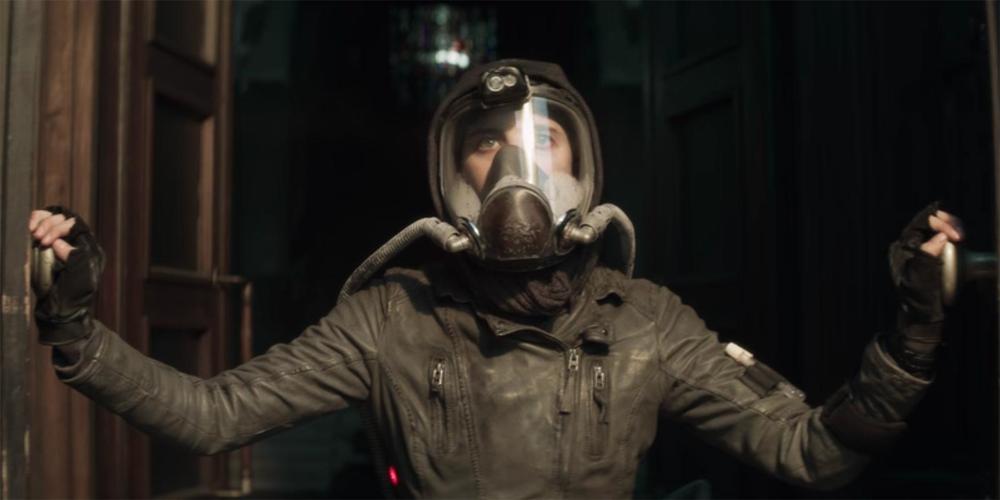I didn't know what to expect when I pressed play on Netflix's IO. Directed by Jonathan Helpert—with Margaret Qualley as Sam and Anthony Mackie as Micah—there wasn't a lot of hype leading up to the film. The setup for it is simple.
Earth's atmosphere has become toxic, and this chemical concoction creates a sludge in the lungs that causes all living things to die. Humans have fled in a mass migration called "The Exodus", and they're now on a space station near Jupiter.
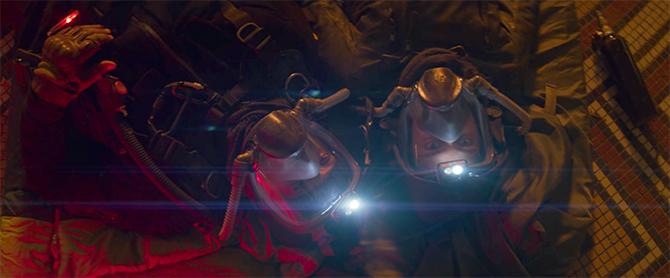
The few remaining survivors live on high-altitude plateaus where the toxic gas doesn't reach them. One of these people is Sam, who is working on a cure that will allow humans to breathe the toxic atmosphere.
After watching the film I have to say that its "understated" label holds true. It's a quiet movie, with very little action. But does this make it boring?
Not really. Just different.
The Good
As mentioned there's not much action. What we do see is concentrated towards the end of the film. The rest is left for character introspection.
I didn't mind the introspection, as Anthony Mackie does a great job as Micah. His character is a former school teacher born in a pre-disaster world. Since then, he's had to grow up on a slowly dying planet and come to terms with it.
This is in sharp contrast to Sam, who was born just after the extinction event and knows nothing else.
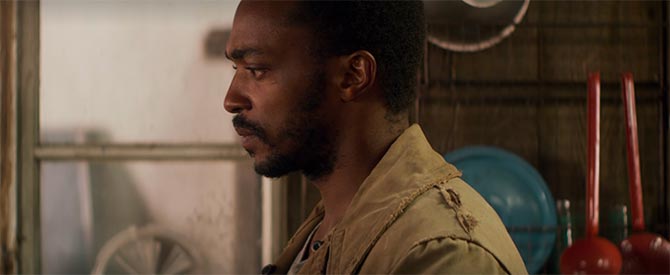
The cinematography is really lovely. It's moody, quiet, and conveys a sense of isolation. The remnants of human civilization that we do see tend to be full of ghosts.
An interesting theme to IO is the importance of nostalgia, and how it can either help us or hold us back. Sam's isolation is driven by the memory of her parents.
She doesn't want to leave the home she grew up in, or deviate from the habits set out by her father. This loyalty towards her childhood memories is what has prevented her from leaving.
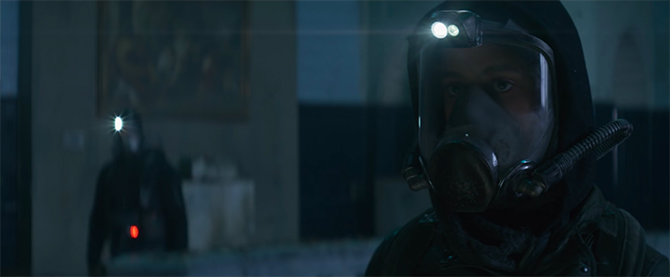
Equally interesting was how the film focused on the sadness of a civilization when it's coming to terms with its own death. The film posits that by being complacent to your own mortality you'll end up unprepared for the consequences.
The Bad
If you're looking for a fast-paced film with a lot of action, IO is not for you. The pacing works well for the film, but it's still slow, and it doesn't feel like a popcorn movie.
I'm also not sure how I feel about Sam. While I understand her motivation, there's this strange sort of infantilism about her behaviour. She acts much younger than her age.
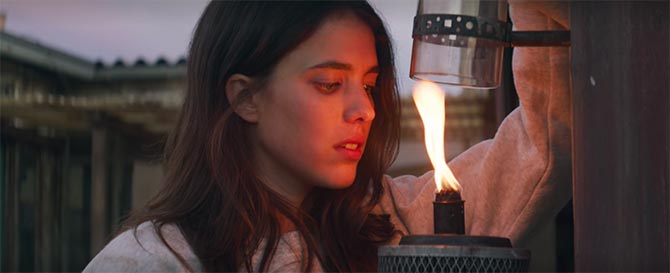
Sam's naivete could be chalked up to her having little human interaction, but that kind of reason falls apart once you consider her job and her circumstances.
She's a scientist driven by a desire to see her life's work realized. When faced with a romantic encounter, her personality becomes much more assertive and aware—almost as if she switches to what the film needs her to be at any given moment.
The Verdict
Despite my qualms about Sam, I still enjoyed this film and would recommend it if you're a fan of slower-paced sci-fi.
IO also reminds me of another Netflix film with similar themes called The Titan. There, a soldier participates in an experimental program where human colonists are bioengineered to withstand the toxic atmosphere on Saturn's moon. In that situation, things go haywire.
Trivia: IO focuses on Sam's work with bees and her efforts to get them to survive a toxic atmosphere. The premise has a lot of weight in real life.
Bees help pollinate a massive array of plants, and without them the entire food chain is thrown into chaos. The Guardian recently ran an article on the current decline in insect populations and how this will have horrific long-term consequences.
